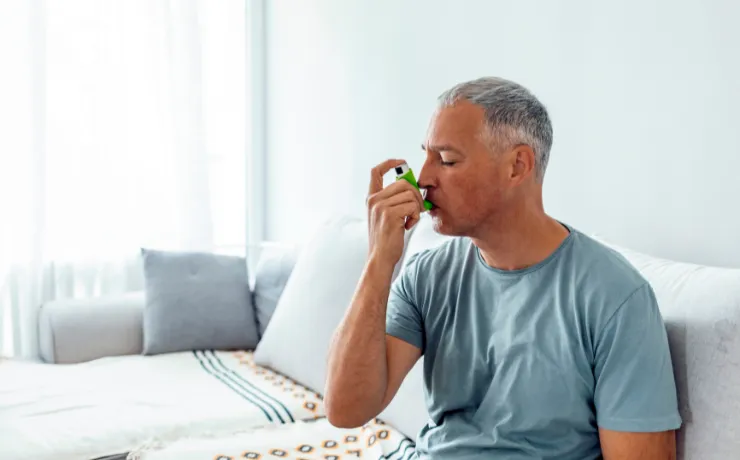Asthma Flare-Up – Quick-Access Inhalers Available Near You

Asthma is a chronic condition that affects the airways, making them inflamed and sensitive. Even people who manage their asthma well can experience flare-ups—sudden episodes of coughing, wheezing, or shortness of breath. Understanding how to recognize, manage, and prevent asthma flare-ups can help you stay safe and breathe easier. At Central Pharmacy, we are here to guide you on managing symptoms and accessing fast-relief options.
What is an Asthma Flare-Up?
An asthma flare-up, also called an asthma attack, occurs when the airways become narrowed and inflamed, making it hard to breathe. Triggers can vary and may include:
-
Allergens like pollen, dust mites, or pet dander
-
Respiratory infections such as colds or flu
-
Exercise or physical activity
-
Cold air or sudden weather changes
-
Smoke, pollution, or strong odors
Symptoms often develop suddenly and can range from mild to severe.
Common Signs of an Asthma Flare-Up
Recognizing an asthma flare-up early is important for prompt treatment. Common signs include:
-
Wheezing or whistling sound when breathing
-
Shortness of breath or rapid breathing
-
Coughing, especially at night or during exercise
-
Chest tightness or discomfort
-
Difficulty speaking in severe cases
If symptoms worsen quickly or breathing becomes difficult, seek medical attention immediately.
Managing Asthma Flare-Ups
While severe asthma attacks require urgent care, pharmacists can provide guidance for day-to-day management.
1. Quick-Relief Inhalers
-
These are rescue medications that help open airways quickly during an attack
-
Often used as soon as symptoms appear
-
Pharmacists can advise on proper technique to ensure effective use
2. Preventive Medications
-
Used daily to reduce inflammation and prevent flare-ups
-
May include inhaled medications designed for long-term control
-
Important to follow your healthcare provider’s instructions consistently
3. Avoiding Triggers
-
Identify and reduce exposure to allergens or irritants
-
Maintain a clean environment free of dust, mold, and smoke
-
Consider allergy management if applicable
4. Monitoring Your Symptoms
-
Keep a record of flare-ups to identify patterns
-
Use a peak flow meter if recommended to track lung function
-
Adjust lifestyle or medications with guidance from your pharmacist or doctor
How Pharmacists Can Help
Pharmacists at Central Pharmacy play an important role in asthma management:
-
Provide guidance on quick-relief and preventive inhalers
-
Demonstrate correct inhaler technique to ensure medication reaches the lungs
-
Offer advice on OTC products that may support symptom management, like saline nasal sprays or humidifiers
-
Help identify triggers and suggest lifestyle adjustments
Pharmacists are also available to review your medication plan and ensure safe use alongside other prescriptions.
When to Seek Immediate Medical Care
Seek emergency care if you experience:
-
Severe shortness of breath that does not improve with a quick-relief inhaler
-
Bluish lips or fingertips
-
Trouble speaking or walking due to breathlessness
-
Rapid worsening symptoms even after using prescribed medications
Early intervention can prevent serious complications and keep your asthma under control.
Tips for Preventing Flare-Ups
-
Take medications exactly as prescribed
-
Avoid known triggers whenever possible
-
Stay up to date with vaccinations like flu or COVID-19 to prevent infections
-
Maintain a healthy lifestyle: balanced diet, exercise, and adequate sleep
-
Schedule regular check-ins with your healthcare provider or pharmacist
Summary
Asthma flare-ups can be frightening, but knowing the signs, triggers, and treatment options can help you respond quickly and safely. Quick-relief inhalers are essential tools for managing symptoms, and pharmacists at Central Pharmacy are ready to provide advice, technique guidance, and support. By staying aware, following your medication plan, and avoiding triggers, you can breathe easier and stay active with confidence.
Snippet From our blog
Explore helpful tips, expert insights, and the latest health updates on our blog. Find practical advice and resources to support a healthier life.